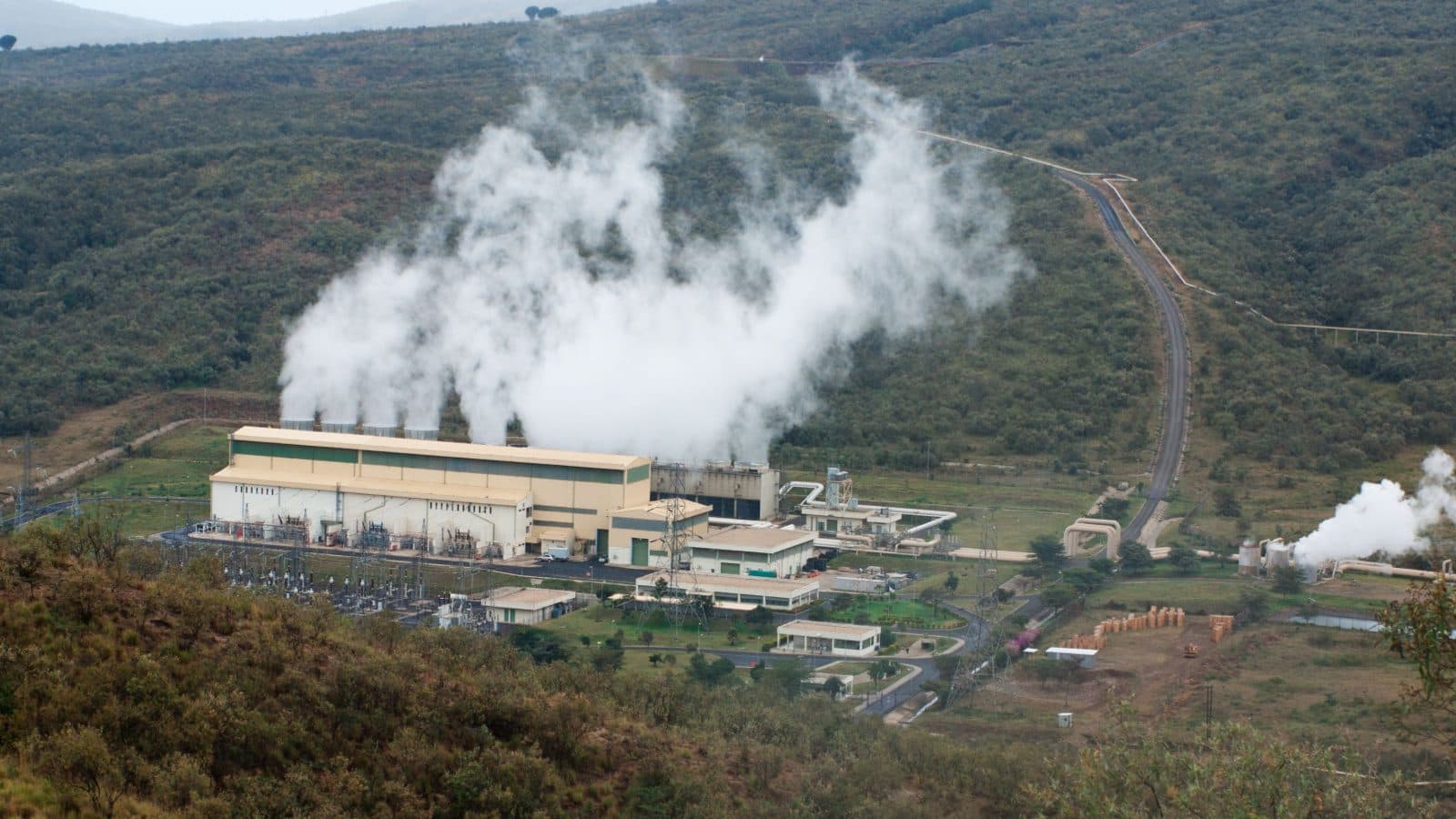Geothermal: Kenya’s Solution to Crypto Mining’s Energy Demand
Electric power generating company KenGen intends to give bitcoin mining companies surplus electricity

Kenya’s Olkaria II geothermal power plant | Source: Shutterstock
- The East African country is one of the top three geothermal energy-producing countries in the world
- This opportunity may put Kenya in a position to be the next bitcoin mining hotspot
KenGen, an electric power generating company in East Africa, has plans to offer bitcoin mining companies its surplus geothermal power in an effort to meet miners’ rising energy demands.
Geothermal power uses heat inside the earth’s crust to generate electricity. The power supply now accounts for 39% of energy production at KenGen.
Miners will have the opportunity to relocate to an energy park at KenGen’s main geothermal power station, a little over 100 kilometers from Kenya’s capital, Nairobi.
Kenya is one of the top three geothermal energy-producing countries in the world.
The energy producer owns and runs five geothermal power stations, which collectively have a max generation capacity of about 713 megawatts (MW) of energy. The ground beneath Kenya’s Rift Valley region still holds an untapped 7,000 MW to 10,000 MW of geothermal energy.
Although the US is still the global leader in bitcoin mining, African countries continue to top Google search results. Offering a sustainable solution to bitcoin mining companies to enter the country during a time when there have been strong anti-bitcoin mining stances in countries such as China, the US and Eastern Europe, may in turn put Kenya in position to become the next crypto mining hotspot.
Despite warnings from their government, Kenyans are among the top bitcoin users in the world, according to a Chainanalysis report.
A move to use geothermal energy for crypto mining could also address some of the escalating concerns around carbon emissions across the globe.
Todd Esse, founder of HashWorks Digital Industries, a crypto mining fund, told Blockworks geothermal power presents meaningful opportunities for bitcoin miners to reduce their carbon footprints. He also suggested heat thrown off by thermal power plants could be used to generate power for miners. “There’s a lot of wasted energy on the grid where there are combustion turbines running, that produce a lot of waste heat that should be utilized for electricity,” he said.
Get the news in your inbox. Explore Blockworks newsletters:
- The Breakdown: Decoding crypto and the markets. Daily.
- 0xResearch: Alpha in your inbox. Think like an analyst.






